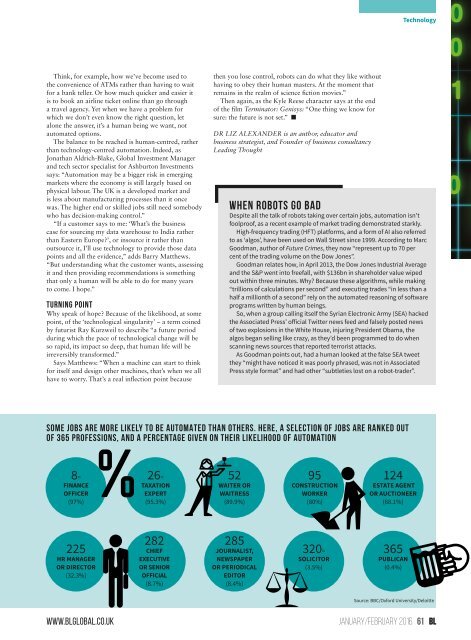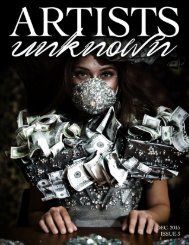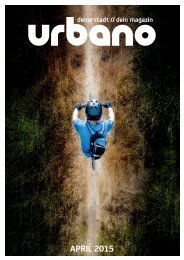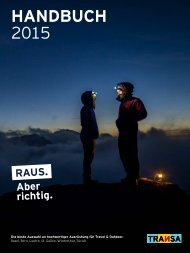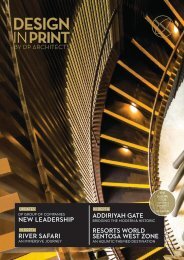BL Magazine
Create successful ePaper yourself
Turn your PDF publications into a flip-book with our unique Google optimized e-Paper software.
Technology<br />
Think, for example, how we’ve become used to<br />
the convenience of ATMs rather than having to wait<br />
for a bank teller. Or how much quicker and easier it<br />
is to book an airline ticket online than go through<br />
a travel agency. Yet when we have a problem for<br />
which we don’t even know the right question, let<br />
alone the answer, it’s a human being we want, not<br />
automated options.<br />
The balance to be reached is human-centred, rather<br />
than technology-centred automation. Indeed, as<br />
Jonathan Aldrich-Blake, Global Investment Manager<br />
and tech sector specialist for Ashburton Investments<br />
says: “Automation may be a bigger risk in emerging<br />
markets where the economy is still largely based on<br />
physical labour. The UK is a developed market and<br />
is less about manufacturing processes than it once<br />
was. The higher end or skilled jobs still need somebody<br />
who has decision-making control.”<br />
“If a customer says to me: ‘What’s the business<br />
case for sourcing my data warehouse to India rather<br />
than Eastern Europe?’, or insource it rather than<br />
outsource it, I’ll use technology to provide those data<br />
points and all the evidence,” adds Barry Matthews.<br />
“But understanding what the customer wants, assessing<br />
it and then providing recommendations is something<br />
that only a human will be able to do for many years<br />
to come. I hope.”<br />
TURNING POINT<br />
Why speak of hope? Because of the likelihood, at some<br />
point, of the ‘technological singularity’ – a term coined<br />
by futurist Ray Kurzweil to describe “a future period<br />
during which the pace of technological change will be<br />
so rapid, its impact so deep, that human life will be<br />
irreversibly transformed.”<br />
Says Matthews: “When a machine can start to think<br />
for itself and design other machines, that’s when we all<br />
have to worry. That’s a real inflection point because<br />
then you lose control, robots can do what they like without<br />
having to obey their human masters. At the moment that<br />
remains in the realm of science fiction movies.”<br />
Then again, as the Kyle Reese character says at the end<br />
of the film Terminator: Genisys: “One thing we know for<br />
sure: the future is not set.” n<br />
DR LIZ ALEXANDER is an author, educator and<br />
business strategist, and Founder of business consultancy<br />
Leading Thought<br />
WHEN ROBOTS GO BAD<br />
Despite all the talk of robots taking over certain jobs, automation isn’t<br />
foolproof, as a recent example of market trading demonstrated starkly.<br />
High-frequency trading (HFT) platforms, and a form of AI also referred<br />
to as ‘algos’, have been used on Wall Street since 1999. According to Marc<br />
Goodman, author of Future Crimes, they now “represent up to 70 per<br />
cent of the trading volume on the Dow Jones”.<br />
Goodman relates how, in April 2013, the Dow Jones Industrial Average<br />
and the S&P went into freefall, with $136bn in shareholder value wiped<br />
out within three minutes. Why? Because these algorithms, while making<br />
“trillions of calculations per second” and executing trades “in less than a<br />
half a millionth of a second” rely on the automated reasoning of software<br />
programs written by human beings.<br />
So, when a group calling itself the Syrian Electronic Army (SEA) hacked<br />
the Associated Press’ official Twitter news feed and falsely posted news<br />
of two explosions in the White House, injuring President Obama, the<br />
algos began selling like crazy, as they’d been programmed to do when<br />
scanning news sources that reported terrorist attacks.<br />
As Goodman points out, had a human looked at the false SEA tweet<br />
they “might have noticed it was poorly phrased, was not in Associated<br />
Press style format” and had other “subtleties lost on a robot-trader”.<br />
SOME JOBS ARE MORE LIKELY TO BE AUTOMATED THAN OTHERS. HERE, A SELECTION OF JOBS ARE RANKED OUT<br />
OF 365 PROFESSIONS, AND A PERCENTAGE GIVEN ON THEIR LIKELIHOOD OF AUTOMATION<br />
8=<br />
FINANCE<br />
OFFICER<br />
(97%)<br />
26=<br />
TAXATION<br />
EXPERT<br />
(95.3%)<br />
52<br />
WAITER OR<br />
WAITRESS<br />
(89.9%)<br />
95<br />
CONSTRUCTION<br />
WORKER<br />
(80%)<br />
124<br />
ESTATE AGENT<br />
OR AUCTIONEER<br />
(68.1%)<br />
225<br />
HR MANAGER<br />
OR DIRECTOR<br />
(32.3%)<br />
282<br />
CHIEF<br />
EXECUTIVE<br />
OR SENIOR<br />
OFFICIAL<br />
(8.7%)<br />
285<br />
JOURNALIST,<br />
NEWSPAPER<br />
OR PERIODICAL<br />
EDITOR<br />
(8.4%)<br />
320=<br />
SOLICITOR<br />
(3.5%)<br />
365<br />
PU<strong>BL</strong>ICAN<br />
(0.4%)<br />
Source: BBC/Oxford University/Deloitte<br />
www.blglobal.co.uk january/february 2016 61


